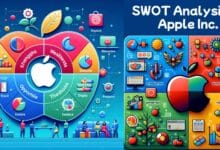How Technology is Affecting Each Generation
Generational Tech Trends: Navigating the Digital Divide

How technology is affecting each generation can be observed in the way older adults are increasingly embracing smartphones and social media to stay connected with their families and friends. Technology has become an inseparable part of our lives, transforming the way we communicate, work, and navigate the world. Its impact varies across different generations, shaping their attitudes, behaviors, and experiences in unique ways.
From the Baby Boomers, who witnessed the rise of personal computers, to Generation Alpha, born into a hyperconnected digital landscape, each generation has encountered technology at different stages of their lives. This article explores how technology affects each generation, highlighting the opportunities, challenges, and transformations brought about by the ever-evolving digital landscape.
Baby Boomers (born 1946-1964)
Baby Boomers have experienced a remarkable technological revolution throughout their lives. Initially, they may have faced challenges adapting to new technologies, as they were introduced to them later in life. However, as technology has become more accessible and user-friendly, Baby Boomers have embraced its benefits.
They use smartphones, tablets, and computers to stay connected with family and friends through social media platforms like Facebook. Technology has also provided them with convenient access to information and entertainment, from news apps to streaming services. Moreover, Baby Boomers have leveraged technology for personal growth, engaging in online courses, virtual communities, and digital platforms that cater to their interests. Technology has also played a crucial role in healthcare, enabling them to monitor their well-being, schedule appointments, and access telemedicine services.
Generation X (born 1965-1980)
Generation X witnessed the rapid development of technology during their formative years. As a result, they became early adopters of personal computers, the Internet, and mobile phones. Generation X incorporates technology seamlessly into their personal and professional lives. They rely on smartphones and laptops for work-related tasks, such as communication, research, and project management.
With the advent of social media platforms like LinkedIn, Generation X has embraced digital networking to expand their professional connections. They also appreciate the convenience of online shopping, digital banking, and streaming services. However, Generation X tends to be more cautious about their online presence and values privacy, often being mindful of the information they share and the security measures they employ.
Generation X also witnessed the transition of sports coverage to cable television, providing a wider range of channels and sports events. This generation also saw advancements in sports broadcasting technology, such as instant replays and enhanced graphics, making the viewing experience more immersive. In addition to more sports viewership and interest, with this generation came advancements in sports as a whole, from sports betting to technology for athletes, like injury recovery and prevention, and VR systems to use to train.
Millennials (born 1981-1995)
Millennials are the first generation to have grown up in an increasingly digital world. Technology is deeply ingrained in their lives, impacting how they communicate, work, and socialize. Millennials are highly proficient in using smartphones, social media platforms, and digital tools. They rely on technology for work-related tasks, from remote collaboration and project management to digital marketing and entrepreneurship.
Social media has become a vital part of their personal lives, allowing them to connect with friends, share experiences, and express themselves creatively. Millennials are also at the forefront of digital content consumption, opting for streaming services, podcasts, and online news platforms. They are also driving the demand for convenience and innovation, leading to the rise of services like ride-sharing, food delivery apps, and the sharing economy.
Millennials grew up during the era of rapid technological advancements in video games. They were exposed to various gaming platforms, including handheld consoles like Game Boy, and witnessed the evolution of 3D graphics and immersive gameplay in systems like the Xbox and the accessories they offer. Millennials also experienced the rise of online gaming and multiplayer experiences.

Generation Z (born 1996-2012)
Generation Z, often referred to as the “digital natives,” has grown up in a hyperconnected and technology-driven world. Their relationship with technology is intimate, with smartphones being an extension of their identities. Generation Z heavily relies on technology for communication, entertainment, and self-expression. Social media platforms like Instagram, TikTok, and Snapchat are integral to their social lives, allowing them to connect with peers, share experiences, and express their creativity. They are adept at creating and consuming digital content, contributing to the rise of influencers, vloggers, and online communities.
Generation Z also leverages technology for learning, with online resources, educational apps, and e-learning platforms providing them with flexible and personalized learning experiences. However, they are also more susceptible to the negative aspects of technology, such as cyberbullying, online harassment, and social media addiction. As a response, Generation Z has been actively advocating for digital well-being and mental health awareness.
Generation Alpha (born in 2013 and onward)
The youngest generation, Generation Alpha, is growing up in a world where technology is omnipresent and seamlessly integrated into their daily lives. They are digital natives from the moment they are born, surrounded by smart devices, virtual assistants, and interactive technologies.
Technology plays a central role in their education, with digital tools like ebooks and online platforms transforming the way they learn and acquire knowledge. Generation Alpha is exposed to immersive technologies like virtual reality (VR) and augmented reality (AR), enhancing their educational experiences and fostering creativity. Entertainment is predominantly digital for this generation, with streaming services, online gaming, and social media platforms shaping their leisure activities.
Generation Alpha is comfortable interacting with screens and digital interfaces, often displaying a remarkable ability to navigate digital content from an early age. However, concerns about screen time, digital dependency, and the need for offline experiences and social interactions remain significant considerations for their upbringing.
-
How Does AI Technology Work in Rephrasing
-
20 Top New Technology Trends for 2023
-
How Nanotechnology Impacts Our Lives
Technology and its effects on generations
In conclusion, the influence of technology on each generation is profound and multifaceted. Baby Boomers, Generation X, Millennials, Generation Z, and Generation Alpha have all experienced the impact of technology in distinct ways. From adapting to new digital tools and platforms to fully embracing technology’s convenience and possibilities, each generation has integrated technology into their daily lives.
While technology has opened up vast opportunities for connectivity, productivity, and self-expression, it also poses challenges such as information overload, privacy concerns, and the need for digital well-being. Navigating the digital landscape responsibly, fostering a healthy relationship with technology, and embracing its benefits while being mindful of its potential drawbacks are crucial considerations for individuals of all generations. As technology continues to advance, understanding its impact on each generation becomes even more essential for building a sustainable and inclusive digital future.







